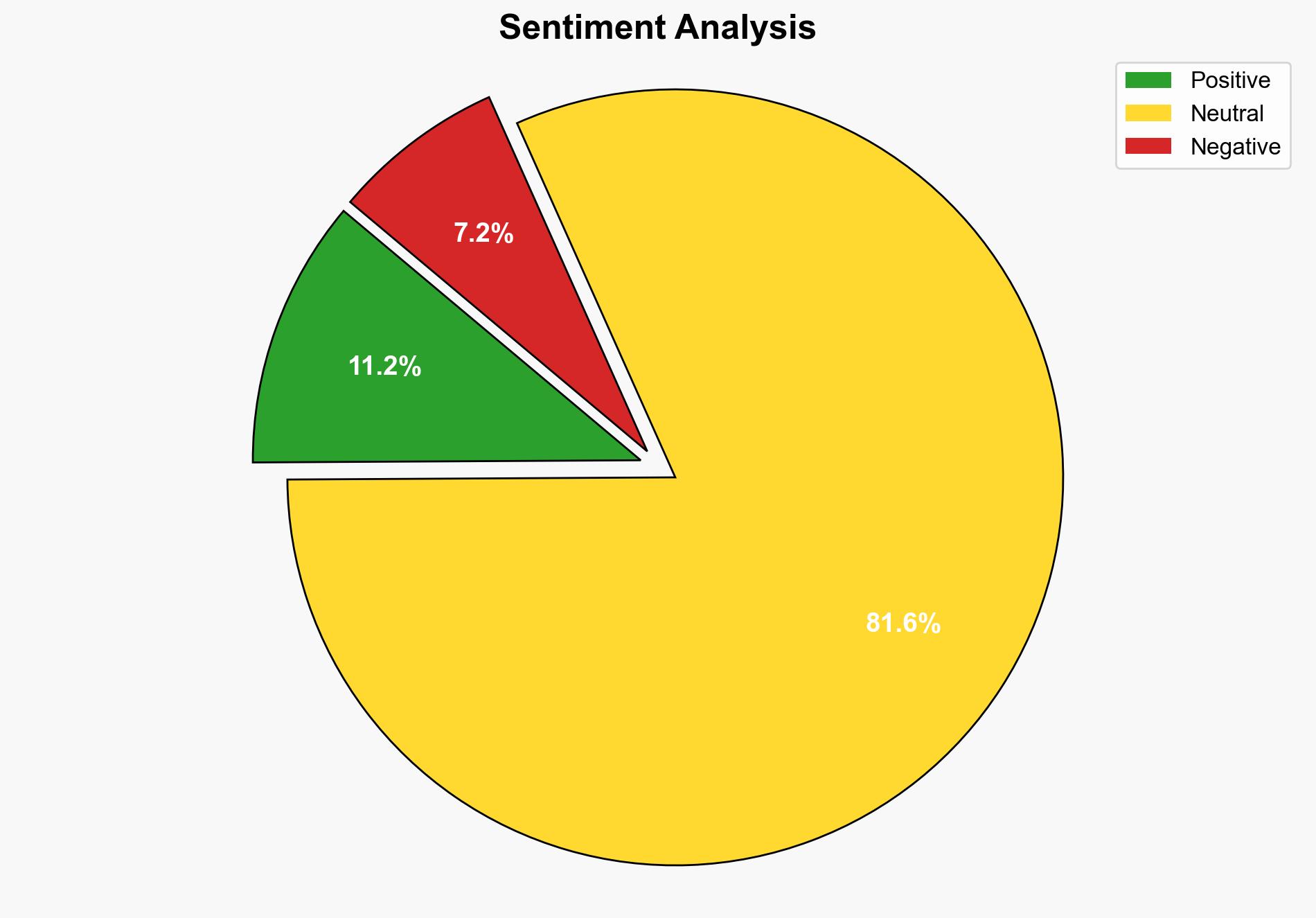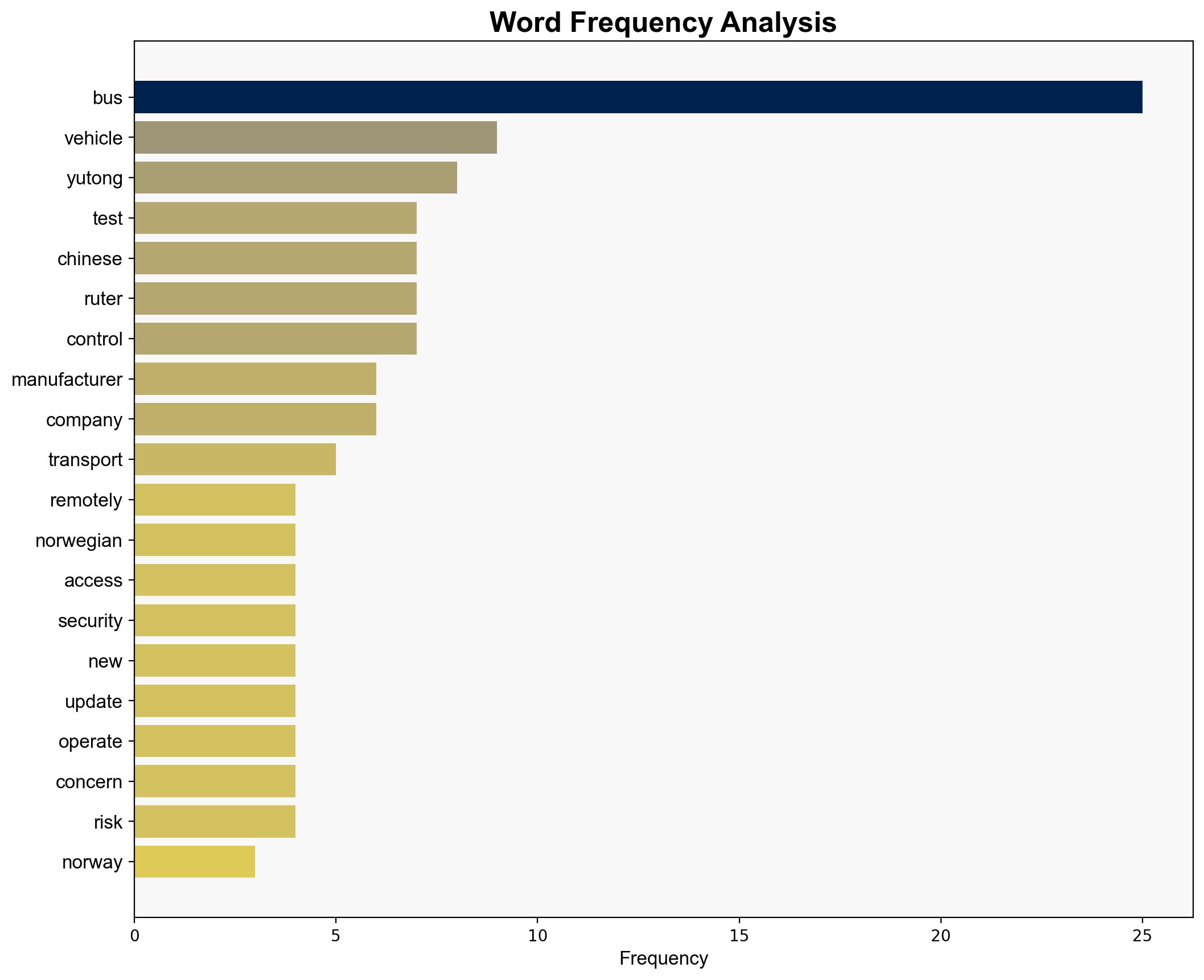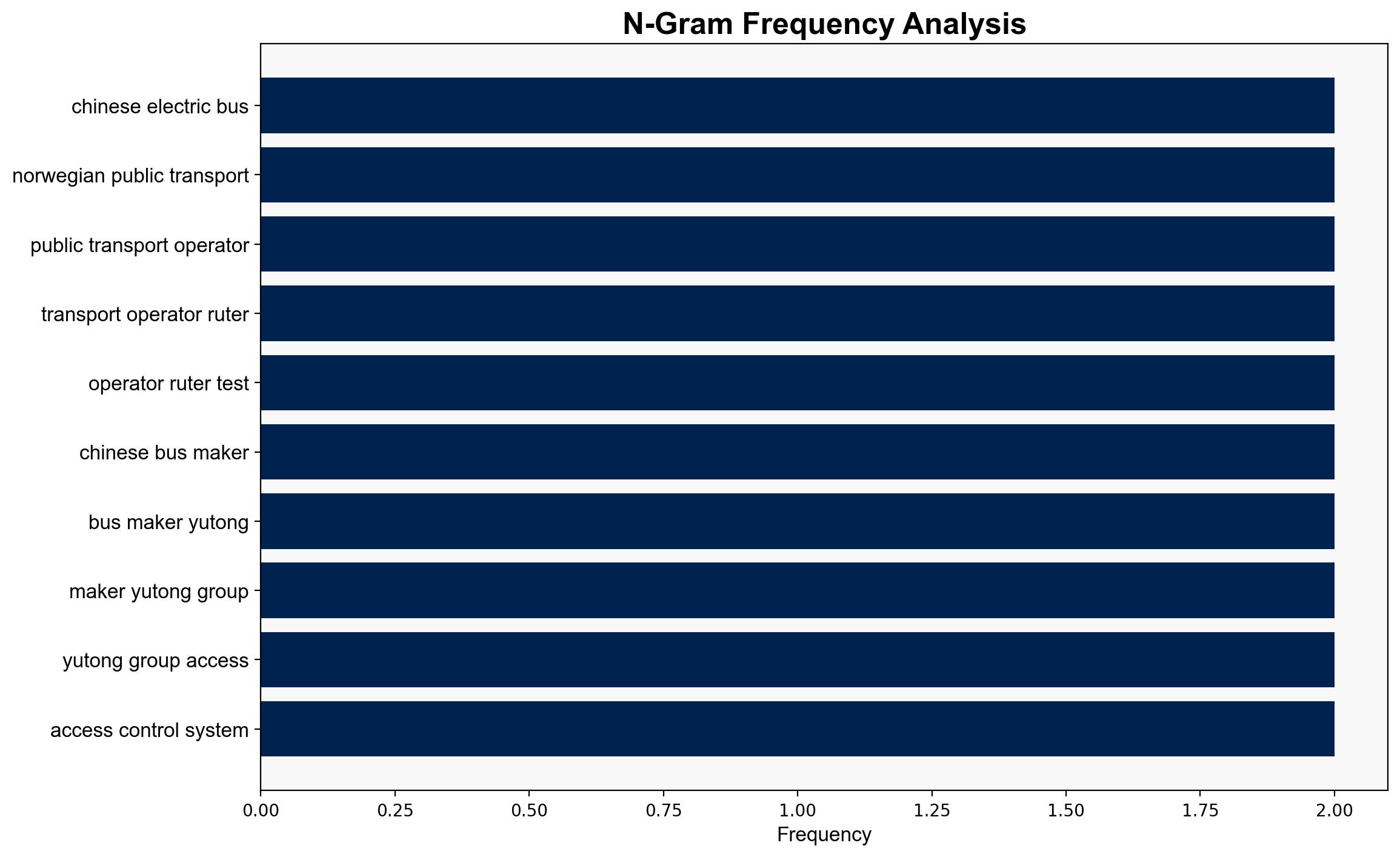Norway tests show Chinese-made electric buses can be halted remotely by manufacturer – CNA
Published on: 2025-11-06
Intelligence Report: Norway tests show Chinese-made electric buses can be halted remotely by manufacturer – CNA
1. BLUF (Bottom Line Up Front)
The most supported hypothesis is that the ability of Chinese-made electric buses to be remotely halted by the manufacturer poses a significant cybersecurity risk, potentially allowing for unauthorized access and control. Confidence level: High. Recommended action: Implement stringent cybersecurity measures and conduct thorough risk assessments for all foreign-manufactured electric vehicles in public transport fleets.
2. Competing Hypotheses
Hypothesis 1: The remote access capability of Chinese-made electric buses is a deliberate feature for maintenance and optimization, with no malicious intent. This feature is common in modern vehicles to enhance service efficiency and customer satisfaction.
Hypothesis 2: The remote access capability represents a cybersecurity vulnerability that could be exploited for espionage or disruption purposes, either by the manufacturer or third parties. This poses a strategic risk to national security and public safety.
3. Key Assumptions and Red Flags
Assumptions:
– Hypothesis 1 assumes that the manufacturer’s intentions are benign and that data encryption is sufficient to prevent unauthorized access.
– Hypothesis 2 assumes that remote access could be exploited and that current security measures are inadequate.
Red Flags:
– Lack of transparency from the manufacturer regarding the extent of remote access capabilities.
– The absence of independent verification of the manufacturer’s compliance with cybersecurity standards.
– Potential bias in assuming that all foreign-manufactured vehicles pose a similar risk without specific evidence.
4. Implications and Strategic Risks
The ability to remotely control electric buses could lead to significant risks, including:
– Cyberattacks targeting public transport systems, leading to service disruptions.
– Espionage activities through data collection and surveillance.
– Geopolitical tensions, as countries may perceive this capability as a threat to national security.
– Economic impacts from potential loss of trust in foreign-manufactured vehicles, affecting trade relations.
5. Recommendations and Outlook
- Conduct comprehensive cybersecurity audits on all foreign-manufactured electric vehicles in public fleets.
- Develop and enforce stringent cybersecurity standards for public transport systems.
- Engage in international dialogue to establish norms and agreements on cybersecurity in public transportation.
- Scenario-based projections:
- Best Case: Enhanced cybersecurity measures prevent any unauthorized access, maintaining public trust and safety.
- Worst Case: A successful cyberattack disrupts public transport, leading to widespread chaos and geopolitical tensions.
- Most Likely: Incremental improvements in cybersecurity reduce risks, but ongoing vigilance is required.
6. Key Individuals and Entities
– Yutong Group
– Ruter (Norwegian public transport operator)
– Bernt Reitan Jenssen (Ruter CEO)
7. Thematic Tags
national security threats, cybersecurity, counter-terrorism, regional focus





